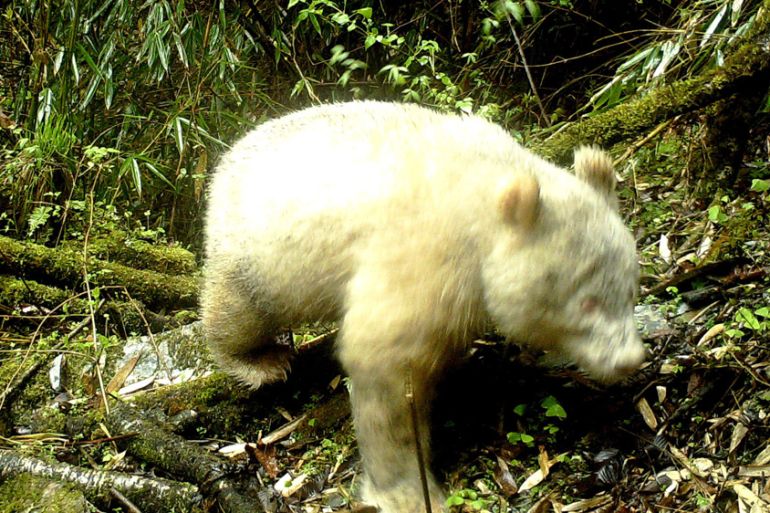Rare all-white panda spotted in China reserve: State media
China’s Wolong National Nature Reserve is in Sichuan province which is home to 80 percent of the world’s wild pandas.

A rare all-white panda has been caught on camera at a nature reserve in southwest China, showing albinism exists among wild pandas in the region, state media reported.
The bear was photographed while trekking through the forest in mid-April in southwest Sichuan province, said official news agency Xinhua on Saturday.
The panda is an albino between one to two years old, said Li Sheng, a researcher specialising in bears at Peking University, who was quoted in Xinhua’s report.
The Wolong National Nature Reserve – where the animal was spotted – told AFP it had no further details about the albino panda.
More than 80 percent of the world’s wild pandas live in Sichuan, with the rest in Shaanxi and Gansu province.
Giant panda park
There were about 548 giant pandas in captivity globally as of November, reported Xinhua.
The number living in the wild has dwindled to fewer than 2,000, according to the World Wildlife Fund.
Famed for its “panda diplomacy”, in which China dispatches the rare animals to other countries as a symbol of close relations, Beijing has invested in different programmes to protect its furry ambassadors in recent years.
In 2018, China announced plans to create a bastion for giant pandas three times the size of Yellowstone National Park to link up existing wild populations and encourage breeding of the notoriously slow-reproducing animal.
At least 10 billion yuan ($1.45bn) had been budgeted for the Giant Panda National Park in mountainous southwestern China the state-run China Daily reported.
Pandas are currently listed as a vulnerable species, which means that while their survival is still threatened, conservation efforts have helped reduce their danger of extinction.